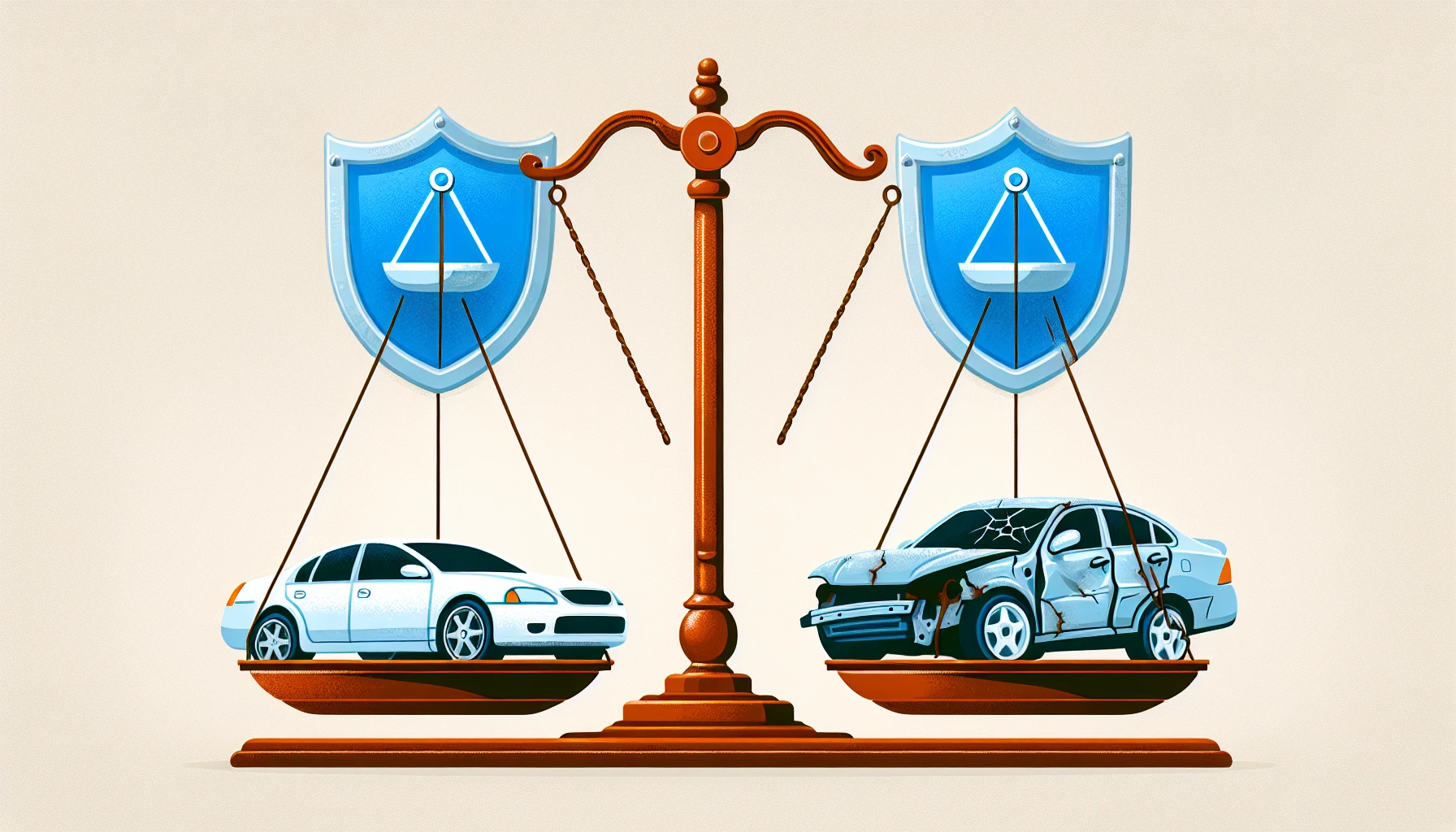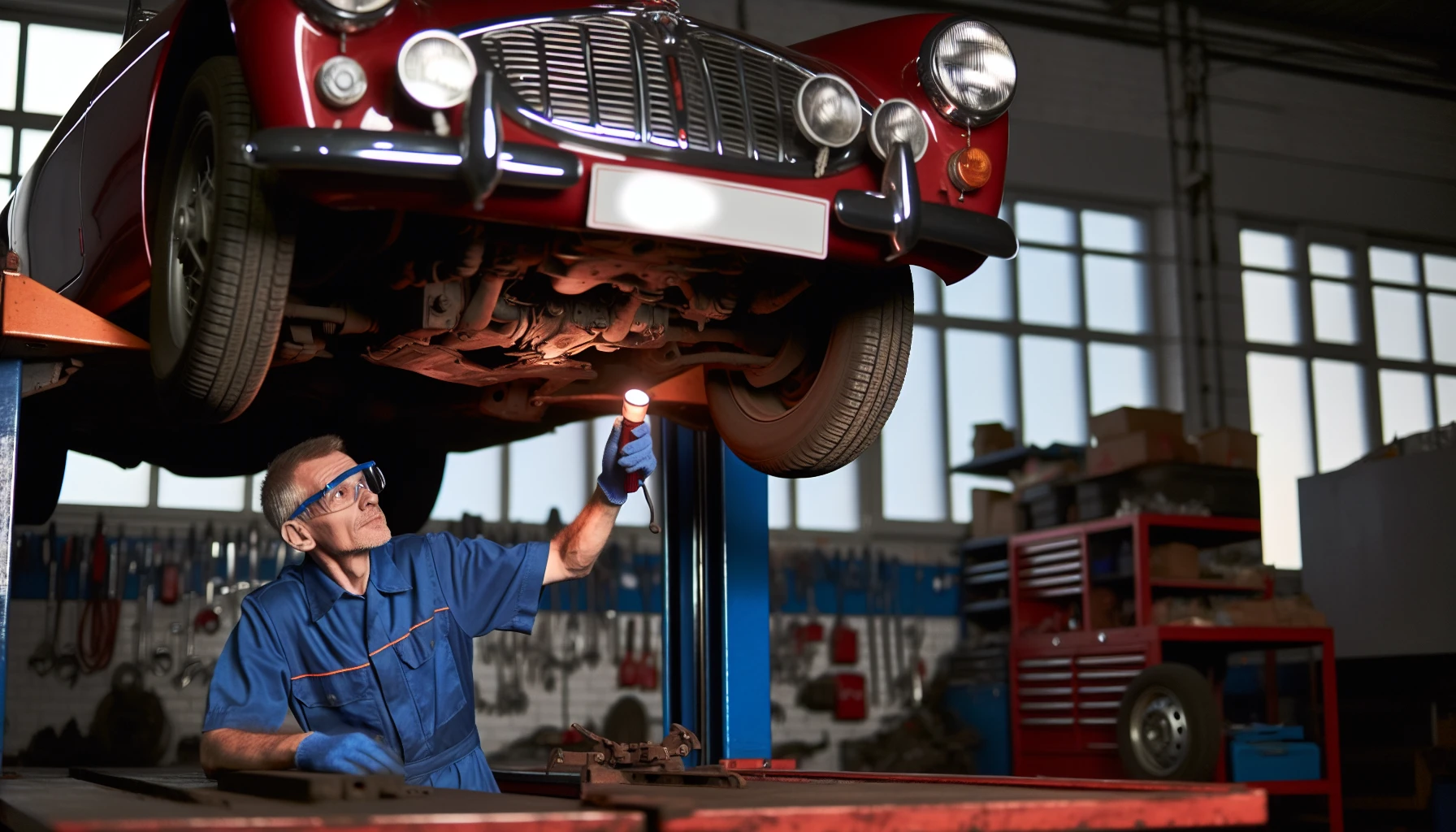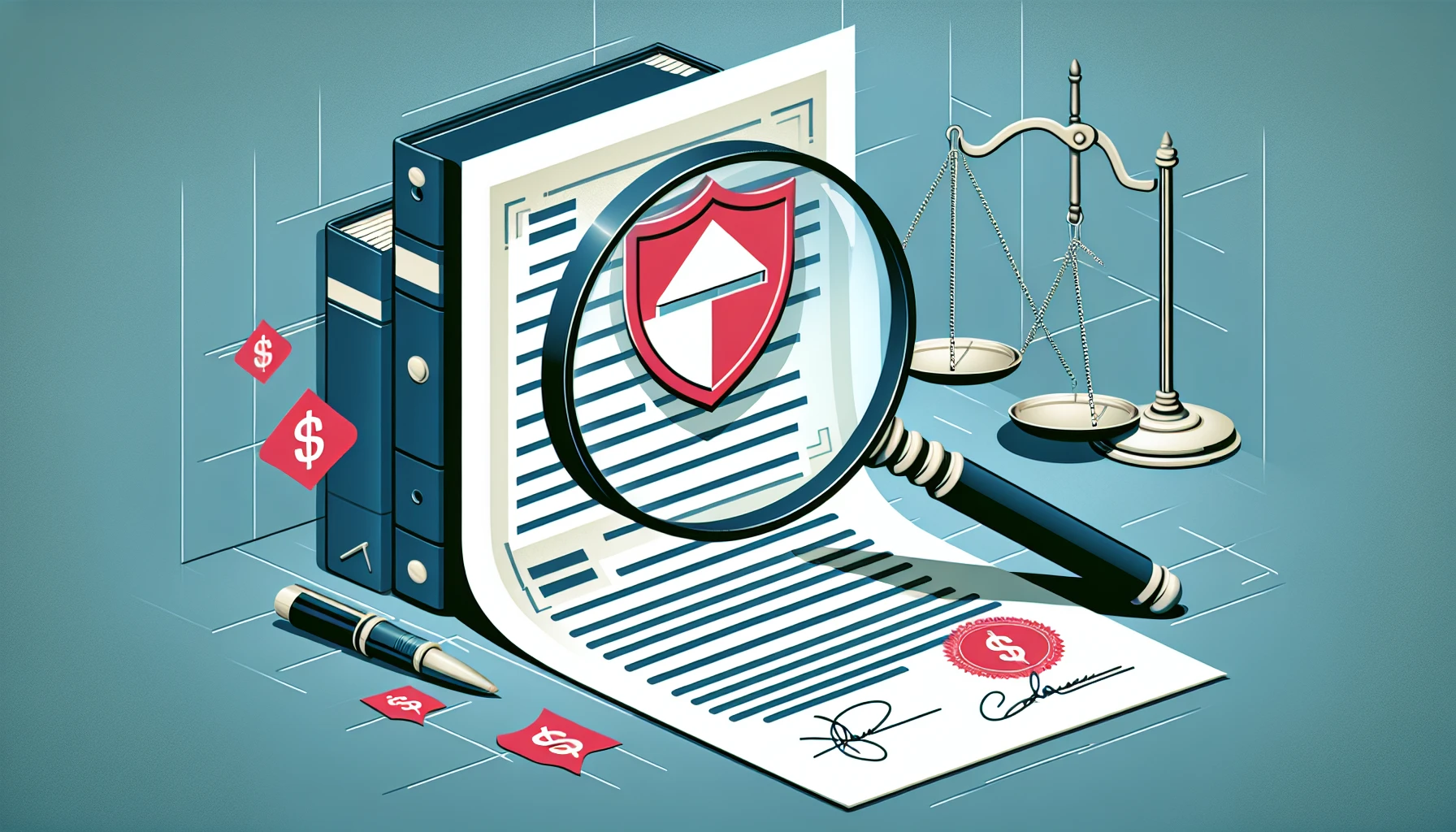When purchasing a vehicle, understanding the difference between clean and salvage titles is crucial to making an informed decision. This blog post will demystify the world of vehicle titles and help you navigate the challenges of buying a car with confidence. So, whether you’re a first-time buyer or a seasoned car enthusiast, let’s embark on this journey towards better decision-making and risk management in the automotive world with a focus on “clean title vs salvage title.”
In the following sections, we will delve into the importance of vehicle titles, the differences between clean title vs salvage title, the process of transitioning to rebuilt titles, and the essential steps to take when evaluating titled vehicles. By the end of this blog post, you will have a clear understanding of what to look for when purchasing a car and how to protect yourself against potential title fraud.
Key Takeaways
- Understand the differences between clean and salvage titles to make an informed decision when purchasing a vehicle.
- Title status can significantly impact resale value, with rebuilt titles typically possessing lower values than clean ones.
- Safeguard against title fraud by recognizing red flags and understanding legal rights & protections.
Understanding Vehicle Title Basics

Vehicle titles supply important details about a car’s history, determining its value and insurance coverage. A car title is a legal document that serves as proof of ownership and contains essential information about the motor vehicles, such as the make, model, year, and vehicle identification number (VIN). The two most common types of titles are clean and salvage titles, which indicate the vehicle’s condition and history.
A clean title signifies that the vehicle has not been severely damaged, while a salvage title implies that the vehicle was deemed a total loss by an insurance company due to significant damage or repair costs exceeding a certain percentage of the car’s value. As a prospective buyer, understanding the distinctions between these titles and the consequences of buying a vehicle with a clean or salvage title is necessary.
The Essence of a Clean Title
A clean title is a sign of a roadworthy vehicle with no major damage. It indicates that the vehicle is legally fit for operation and has not been declared a total loss. However, keep in mind that a clean title doesn’t imply the vehicle is in flawless condition or hasn’t been involved in any significant accidents.
To qualify for a clean title, a vehicle must never have been declared a total loss or salvage car, and there should be no clouds over the ownership, liens, or permanent title brands. A clean title is highly sought after by buyers as it implies a vehicle with minimal damage, thereby commanding higher resale values and easier insurance options, compared to a branded title.
The Story Behind Salvage Titles
Salvage titles, on the other hand, are assigned to vehicles deemed a total loss due to extensive damage or repair costs exceeding a certain percentage of the car’s value. An insurance company typically brands a vehicle’s title as salvage when the cost of repairs is equal to or greater than 50% of the vehicle’s value. These vehicles are no longer considered legally operable on the road and are often seen as a type of junk car.
However, a car with a salvage title can be returned to a drivable state by conducting the required repairs and passing a state-approved inspection. Once the vehicle passes the inspection, it can be issued a rebuilt title, allowing it to be driven again legally. It’s important to remember that driving a vehicle with a salvage title may be prohibited in certain states.
Comparing Clean and Salvage Titles

The differences between clean and salvage titles have significant implications on a vehicle’s value and insurance coverage. Here are some key points to consider:
- Clean titles generally have a higher resale value.
- Salvage titles can considerably reduce a vehicle’s worth.
- Insurance companies may be hesitant to cover salvage title vehicles or may charge higher premiums due to the perceived risk.
Before buying a titled vehicle, you should consider the advantages and disadvantages of clean and salvage titles. While clean titles typically imply a roadworthy vehicle with minimal damage, salvage titles can signify a vehicle with a troubled past and potential issues. Understanding these differences can help you make an informed decision when purchasing a vehicle and protect yourself from potential risks.
Impact on Vehicle Value
Clean titles typically possess higher resale value, as they indicate a vehicle with no major damage or issues. On the other hand, salvage titles and branded titles can drastically reduce the resale value of a vehicle as potential buyers may question its structural integrity, reliability, and overall condition. According to Kelley Blue Book, vehicles with a salvage title generally sell for 20% to 40% less than what is considered fair market value.
Title washing, a fraudulent practice where a vehicle’s title is intentionally altered to conceal its true history, can also result in a vehicle being overvalued and create the appearance of a clean title. Staying alert to potential title fraud and understanding the difference between clean and salvage titles can assist you in making a sound judgement when buying a vehicle.
Insurance Implications
Insurance companies may be hesitant to cover salvage title vehicles due to the assumption that owners of these vehicles are more likely to file claims. As a result, premiums for salvage title vehicles can be up to 20% higher than those for clean title vehicles. Moreover, not all insurance companies offer coverage for salvage title vehicles, which can lead to fewer competitive rates.
Before buying a vehicle with a rebuilt title, you should check with your insurance company to see if they are willing to cover the vehicle. This can help you avoid potential issues and additional costs associated with insuring a vehicle with a salvage or rebuilt title.
Transitioning to Rebuilt Titles

Rebuilt titles are given to vehicles that have undergone significant repairs and passed state inspections after initially being considered a total loss with a salvage title. This process involves restoring the vehicle to a roadworthy condition and ensuring it meets or exceeds the safety and roadworthiness standards set by the state in which it is registered.
However, once a vehicle has been issued a rebuilt title, it cannot be issued a clean title again. This is because the rebuilt title serves as a reminder for buyers that the vehicle has experienced significant damage in the past and may come with potential risks or issues. It’s important to be aware of these implications when considering purchasing a vehicle with a rebuilt title.
Inspection and Certification
Vehicles with rebuilt titles must pass state inspections and certifications to ensure they are roadworthy and safe. The specific inspection requirements may vary depending on the state, but generally, the vehicle must be repaired to meet safety and roadworthiness standards. To obtain a rebuilt title, one must typically provide the original salvage title, all required vehicle inspection documents, and an emissions compliance certificate if applicable.
An authorized third party is typically responsible for conducting the inspections and certifications for a rebuilt vehicle title. This ensures that the vehicle has been thoroughly inspected and repaired, guaranteeing its safety and roadworthiness before it can be legally driven again.
Market for Rebuilt Vehicles
Rebuilt vehicles can be a more affordable option for buyers, but they may come with potential risks and lower resale value. The market for rebuilt vehicles is considerable, with the US vehicle auction market estimated to be worth $3.21 billion in 2022 and projected to reach $3.82 billion by 2028. Rebuilt vehicles typically cost thousands of dollars less than clean title vehicles, and a rebuilt title can decrease a car’s value by 20-50%, depending on its condition and age.
Buyers should be aware of the potential risks associated with purchasing a rebuilt vehicle. Even if the car has been properly rebuilt by certified mechanics, unforeseen issues may still arise. You should conduct a thorough examination and consult a qualified mechanic before buying a rebuilt vehicle to ensure you’re making a wise investment.
The Buyer’s Checklist: Evaluating Titled Vehicles

Certain steps must be taken before buying a titled vehicle to protect yourself from potential risks and make a sound judgement. By consulting a qualified mechanic and verifying the vehicle’s history through reports, you can obtain important information about the vehicle’s condition, history, and potential issues. This information can assist you in negotiating a reasonable price for the vehicle and ensuring that you’re making a sound investment.
In the following subsections, we will discuss the importance of seeking a qualified mechanic’s insight and verifying the vehicle’s history through reports. These steps can help you evaluate the vehicle thoroughly, uncover any discrepancies or potential fraud, and ultimately make an informed decision when purchasing a titled vehicle.
Seeking a Qualified Mechanic’s Insight
A qualified mechanic can provide valuable insight into the vehicle’s condition and potential issues. They can conduct a comprehensive inspection of the vehicle and detect any existing conditions or potential problems that may arise in the future. This information can help you make a well-informed decision and negotiate a reasonable price for the vehicle.
A mechanic can also confirm the vehicle’s history and look into any previous accidents or damage that may not be readily apparent to the buyer. It’s crucial to consult a mechanic when considering a used car with a rebuilt title, as they can help you understand the vehicle’s history and its condition, ensuring that you’re making a sound investment.
Verifying History Through Reports
Vehicle history reports can help verify the title status and uncover any discrepancies or potential fraud. These reports provide essential information about a vehicle’s history, such as a car’s past, including:
- Ownership history
- Accident history
- Title status
- Mileage
- Service records
Obtaining a vehicle history report can help you make a sound decision about the vehicle and protect yourself from potential risks.
Carfax and AutoCheck are widely regarded as the most reliable vehicle history report services. To acquire a vehicle history report, you must supply the vehicle identification number (VIN) of the vehicle and request the report from various sources, including the dealer, your insurance company, or a third-party service. This information can assist you in making an informed decision when purchasing a titled vehicle.
Safeguarding Against Title Fraud

Protecting yourself from title fraud is key when buying a titled vehicle. Recognizing warning signs and understanding your legal rights and protections can help you avoid potential risks and protect your investment. In this section, we will discuss how to recognize signs of title washing or fraudulent documentation and familiarize yourself with legal recourse and consumer protection laws.
In the following subsections, we will delve into the process of recognizing red flags and understanding the legal recourse and protection available to consumers against title fraud. By being vigilant and well-informed, you can protect yourself from potential risks and make informed decisions when purchasing a titled vehicle.
Recognizing Red Flags
Be vigilant for signs of title washing or fraudulent documentation when evaluating a vehicle’s title. Some potential red flags of title fraud include:
- Missing or altered numbers or information
- Errors in the data
- Altered text or images
- Unusual or suspicious-looking features
- Mismatched information on the title or ownership papers
By understanding the variations in salvage title regulations between states and being aware of states with more lenient salvage title laws, you can identify potential title issues and protect yourself from potential risks. It’s essential to perform due diligence and obtain full vehicle histories to detect title washing and other fraudulent practices.
Legal Recourse and Protection
The Federal Trade Commission (FTC) and state laws offer consumer protection to prevent title fraud. The FTC is responsible for enforcing federal consumer protection laws and preventing fraud, deception, and unfair business practices. They collect complaints, conduct investigations, and can take legal action against fraudulent businesses.
Local consumer protection agencies are also involved in investigating and addressing title fraud cases, offering assistance and resources to impacted consumers. It’s essential to familiarize yourself with legal recourse and consumer protection laws to safeguard against potential title fraud and make informed decisions when purchasing a titled vehicle.
Summary
In conclusion, understanding the differences between clean, salvage, and rebuilt titles is crucial when purchasing a vehicle. By being well-informed about the implications of each title type and taking the necessary steps to evaluate the vehicle thoroughly, you can protect yourself from potential risks and make an informed decision. Consult a qualified mechanic, verify the vehicle’s history through reports, and be vigilant for signs of title fraud to ensure a smooth and secure vehicle purchasing experience.
Remember that knowledge is power, and staying informed is the key to making the best decisions when purchasing a titled vehicle. By following the guidelines provided in this blog post, you can confidently navigate the world of vehicle titles, make informed decisions, and enjoy the journey of car ownership.
Frequently Asked Questions
What is the difference between a clean title and a salvage title?
A clean title indicates that the vehicle has not been damaged, whereas a salvage title means the vehicle was deemed a total loss by an insurance company due to extensive damage or repair costs.
Can a vehicle with a salvage title be restored to a roadworthy condition?
Yes, a vehicle with a salvage title can be restored to a roadworthy condition by undergoing necessary repairs and passing an inspection approved by the state.
What are the implications of having a rebuilt title?
Having a rebuilt title means that the vehicle has undergone extensive repairs and passed state inspections, but it cannot be issued a clean title again. This may have an effect on the market value of the vehicle.
How can I verify the history of a vehicle?
Verifying the history of a vehicle is possible by obtaining a vehicle history report from reliable services like Carfax or AutoCheck. These reports provide comprehensive information about a used car’s past, including ownership, title status, accident history, and mileage.
What steps should I take before purchasing a titled vehicle?
Before purchasing a titled vehicle, it is essential to consult a qualified mechanic and verify the vehicle’s history through reports to evaluate it thoroughly, uncover any discrepancies or potential fraud, and make an informed decision.





 Who We Are
Who We Are Coverage Area
Coverage Area Donate
Donate